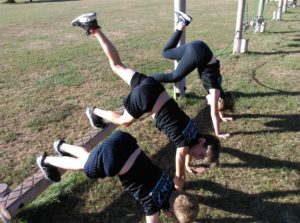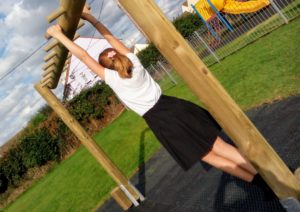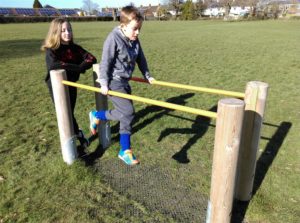The Daily Mile: Teachers “Must Try Harder”
Why the Daily Mile should not be mandatory for pupils
Two Primary School head teachers have mentioned the “Daily Mile” to me in the last 6 months. The first said he was going to introduce it in his school. The second asked me about it and had concerns because she didn’t want any of the pupils “dreading coming to school“.
The Daily Mile is just the latest in a series of initiatives that have been launched in an effort to combat childhood obesity and/or improve physical fitness in young people. It is easy to get swept along with the latest craze, and I would expect children to do the floss, fidget spin, create loom bands and play Fortnite as the prevailing fads of their time.
However, teachers, governors and sports partnerships should know better. They need to analyse any new initiative and see if it fits in with their underlying philosophy or strategy for physical education, rather than jump on the bandwagon. In short their end of term report should read “must try harder“.
Falling for the false dichotomy
The Daily Mile research was conducted between two different schools. One had each pupil do a mile of walking or running each day, the other had their pupils do nothing extra. Guess what? Something was better than nothing!
This “quasi-experimental pilot study” has then been heavily marketed and promoted as the magic pill to solve obesity problems. So what we have is a simplistic answer to a complex problem.
But the options we have are not:
- Daily Mile
- Nothing
There are plenty of other ways to get children moving (see below), so why is this being promoted so heavily and is it really a problem?
I think it is promoted heavily for a few reasons that I can see.
- It has a catchy title. Yes, things get launched like this simply because everyone can grasp the concept easily, even politicians. Just like the “5 a day” for fruit and vegetables which has no supporting evidence but was decided on at the end of a long day, just so the advisers could walk out with something on paper!
- It is easily measured and implemented. How much effort does it take for a teacher who has had only 6 hours of physical education training ever to say “Ok kids, 4 laps round the field and then come back in“?
- It is Scottish. I don’t know why this should be a thing, but Scottish MPs keep tweeting about it and therefore trying to back it. It doesn’t matter that the research is poorly designed and only one study has been done, the fact that it is Scottish means it is good!
But our children love doing the Daily Mile
Because a school or sports partnership have started this initiative, they have to then promote it heavily and show smiling kids to show it works. Some children will love it. Some children will like moving and talking with their friends. Some children will loathe it.
If the alternative means sitting on a concrete floor for 50 minutes in a compulsory assembly, then of course children would prefer to be outside.
What we have is an adult- led initiative with one movement pattern being imposed upon children. STOP.
Children like to run and jump, but in their own fashion (see video).
There are many more alternatives which will lead to an "Intoxicating physical education environment“. In Willand I have been working with the Parish Council to improve the parks based on what children like doing themselves, rather than doing miniature versions of adult activities.
If you look at how children play, none of them, repeat none of them, run into a park and say “ok, let’s do 4 laps“. That is an adult mentality.
Children run, jump, skip, hop, climb, hang, cartwheel, kick balls, throw and catch, hit nettles with sticks and jump in mud. Why not enhance that and give them more opportunities to do so?
3 alternatives to the Daily Mile
These require more work and co-ordination between schools and councils, none have a catchy title, but they are designed to improve the overall well-being of children, parents and the local community. They should be done in addition to a well designed physical education programme.
- Playground painting and games. Hopscotch, snakes and ladders and other different patterns on the playground itself encourage children to move and play. Using older children to help younger children learn the games also helps social interaction. Rope skipping, bean bag throwing and balance logs are also popular.
- “Park and walk”: if the kids walk to school, then their time in school can be spent on education. If the schools had a 400 metre “no car zone” then parents would have to walk 400m and back twice a day (1 mile). Why should the children be forced to do something the adults don’t? Kids would then be able to talk to their parents, rather than look at the back of their head in the car.
- Improve your local park. If the local park is better equipped, then the school can take pupils there in school time and the kids will have access after school in holidays and at weekends.
Willand school and Willand Parish Council are doing two of these three. We are trying to improve the health and well being of the whole community, working together.
Other communities will be doing similar projects which are equally valid, but have not had the publicity that “The Daily Mile” has. Rarely in life does the simple answer solve complex problems, so beware of something that becomes mandatory.



